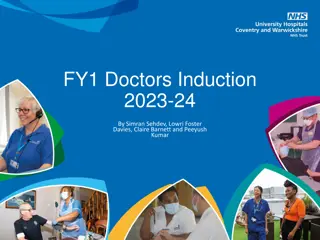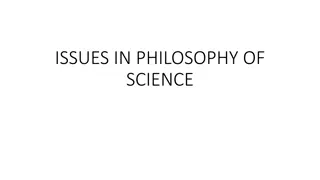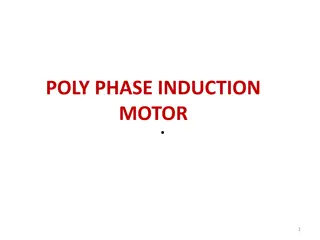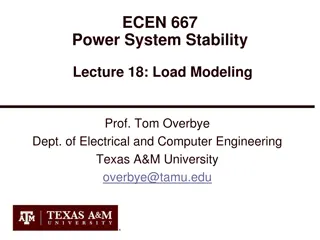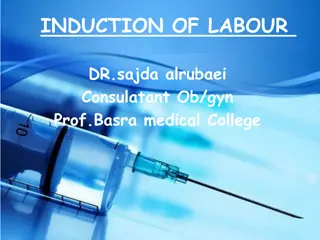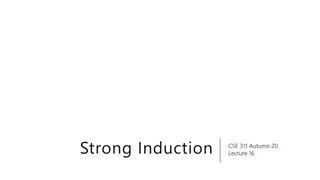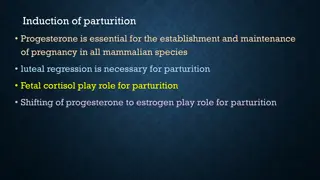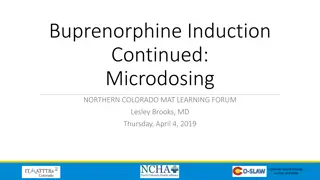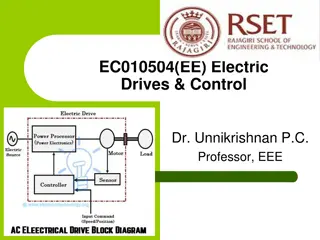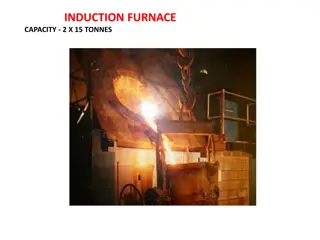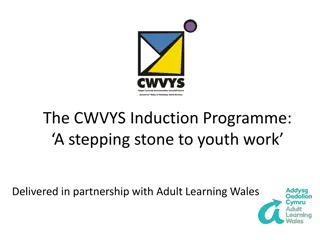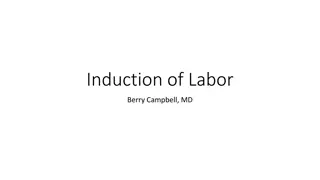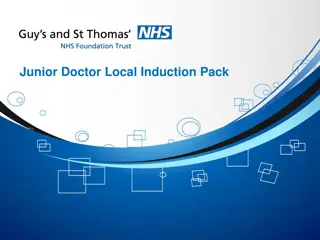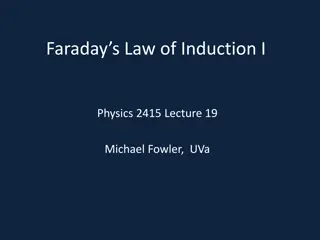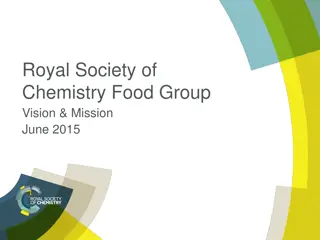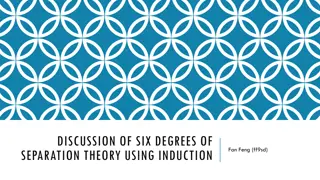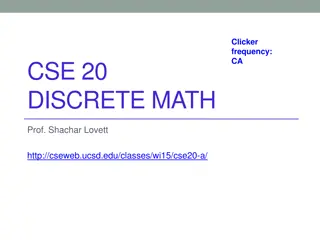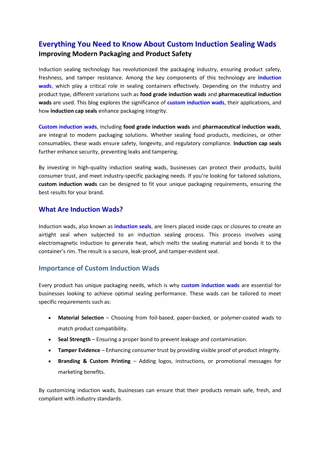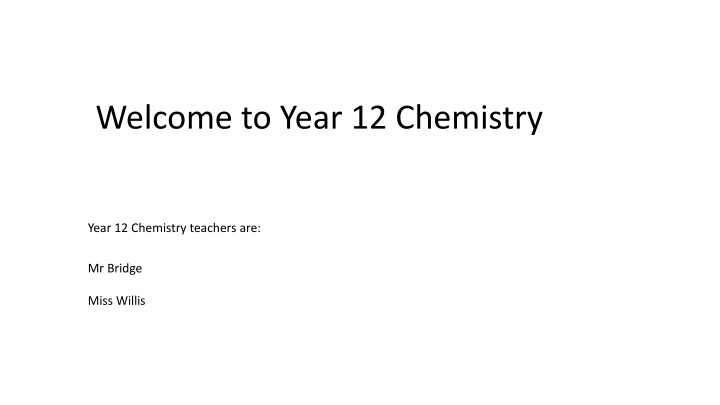
Year 12 Chemistry Course Overview and Study Tips
Discover the structure and content of Year 12 Chemistry, taught by Mr. Bridge and Miss Willis. Learn about the OCR A Level Chemistry qualification, career opportunities, effective study strategies, and course modules. Get insights on practical assessments, atomic structure, redox reactions, and more. Prepare for success in Chemistry A Level with valuable guidance and resources.
Download Presentation

Please find below an Image/Link to download the presentation.
The content on the website is provided AS IS for your information and personal use only. It may not be sold, licensed, or shared on other websites without obtaining consent from the author. If you encounter any issues during the download, it is possible that the publisher has removed the file from their server.
You are allowed to download the files provided on this website for personal or commercial use, subject to the condition that they are used lawfully. All files are the property of their respective owners.
The content on the website is provided AS IS for your information and personal use only. It may not be sold, licensed, or shared on other websites without obtaining consent from the author.
E N D
Presentation Transcript
Welcome to Year 12 Chemistry Year 12 Chemistry teachers are: Mr Bridge Miss Willis
What qualification will you be studying? We study the OCR A Level Chemistry A qualification You should download a copy of the specification and refer to it throughout the course to make sure you have covered all the points https://www.ocr.org.uk/Images/171720-specification-accredited-a- level-gce-chemistry-a-h432.pdf
What can I do with a chemistry A Level? Chemistry A level teaches you a range of transferrable skills which a variety of employers are looking for. These include: Problem solving Working as part of a team Self management Resilience Careers include: Medicine, Pharmacy, Chemist, Accountant, Stock Broker - Actually pretty much anything you want!!
How to study effectively: Our expectations Free periods are not free! - Plan to use non contact periods to study For every hour you are taught, you should plan to do an hour of independent study You will need to practice - the homework you will be given is the MINIMUM you need to do. You should try and gain an understanding of the principles - simply learning facts is not as successful at A level as it was at GCSE Try and adopt a can do attitude things will get hard quite quickly! If you are finding something hard you simply have to try a different approach to gain an understanding.
How is the course structured Module 1 is studied throughout the course. During the 2 years, you are required to do 12 assessed practicals. Each practical is written up in a lab book. All assessment is internal. You will however get exam questions on the practicals. Modules 2 ,3 and 4 are studied in year 12 Modules 5 and 6 are studied in year 13
What is the content and who teaches it? Timeline LWI Content CBR Content Module 2, Section 2.1.1 Atomic structure and isotopes Section 2.1.3 Amount of substance Year 1, Term 1 Supporting practical work: Module 2, Section 2.1.2 Compounds, formulae and equations Supporting practical work: experiments requiring measurement of mass and volume (liquids, solutions and gases), and calculations related to amount of substance (PAG1) Section 2.2 Electrons, bonding and structure Section 2.1.5 Redox redox reactions of acids reactions of acids Section 2.1.4 Acids acid base titrations (PAG2) Supporting practical work: Module 3, Section 3.1.1 Periodicity Section 3.1.2 Group 2 Module 4, Section 4.1.1 Basic concepts of organic chemistry reactions of Group 2 elements
What is the content and who teaches it? Timeline LWI CBR Content Content Year 1, Term 2 Module 3, Remainder of Section 3.1 Supporting practical work: Module 4, Supporting practical work: reactions of halogens and halide displacement reactions reaction of bromine with cyclohexane and cyclohexene Remainder of Section 4.1 Section 3.2.1 Enthalpy changes Section 3.2.2 Reaction rates qualitative analysis of inorganic ions (PAG4) reactions of alcohols Section 4.2.1 determination of enthalpy changes (PAG3) reactions of haloalkanes Alcohols investigation of reaction rates (more extensive work on reaction rates in the second year of A Level will count towards PAG9 and PAG10) qualitative analysis of organic functional groups (PAG7; more work may be done in the second year of A Level) Section 4.2.2 Haloalkanes Year 1, Term 3 Module 3, Section 3.2.3 Chemical equilibrium Suggested practical work: investigation of changes to the position of equilibrium in response to changes in concentration, temperature and in the presence of a catalyst Module 4, Remainder of Section 4.2 synthesis of an organic liquid (PAG5) Mock exams Post Mocks A Level students begin A level modules
What resources will you need? Text book You will be provided with this Lab Book You will be provided with this Folder/File You will need to buy these Recommended additional resources CGP revision guide Calculations in A/S A level chemistry by Jim Clark
If you are really keen A molecular modelling kit is very useful to be able to visualise molecules You can sell it once you have finished! Here is a link to one on Amazon https://www.amazon.co.uk/Molecular-pieces-Advanced-Chemistry- Instructional/dp/B06XHHCKMN/ref=sr_1_9?dchild=1&keywords=molec ular+modelling+kit&qid=1593449537&sr=8-9
Useful websites http://chemrevise.org/ocr-revision-guides/ Fantastic revision guide resources, if you want pre-written revision notes, it s all here! http://www.physicsandmathstutor.com/chemistry-revision/a-level-ocr-a/ Physics and maths you say some fantastic exam questions by topic for the NEW SPEC!! http://www.knockhardy.org.uk/sci.htm Notes for all topics, depends on the layout you prefer. www.chemguide.co.uk Written by Jim Clark (author of the chemistry calculations book) Your go to site for easy explanations.
The summer challenge The summer challenge revises some topics that you have already studied at GCSE and introduces some new ones. If you get stuck, use the resources on this presentation or try a quick google search to see if you can work out the answer. Click on the link Summer challenge
How to contact us If you need to contact either of us, please send us an email. christopher.bridge@thebicesterschool.org.uk libby.willis@thebicesterschool.org.uk We look forward to seeing you in September!! Mr Bridge and Miss Willis



